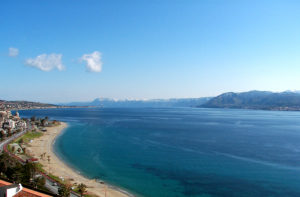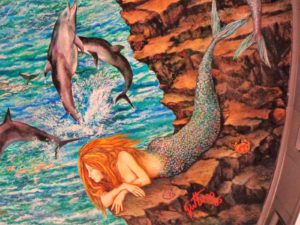Colapesce’s legend
The legend of Colapesce is recorded by various researchers and reported in several fairy tale and legend collections. The different versions we have of this legend vary according to the storyteller and to the city where it was handed down, although the core features of the tale are consistently kept. A boy named Cola has a special relationship with the sea and spends most of his days swimming; the nickname derived from this passion is Cola Pesce, or Colapesce, in Palermo often called Piscicola (where pesce means fish). His mother often advises him to avoid continuing with what she says is an unhealthy habit that will lead him to ruin. The words of Cola’s mother sound in various versions like a warning to become a fish as if her recommendations had been a curse.
The legend is analysed by important authors, Pitrè for example compares seventeen versions of the tale. A version taken up by several writers is the one collected by Italo Calvino in Palermo and transcribed in his collection of Italian fairy tales. The version reported by Calvino tells the story of Cola the young man from Messina, who has such a privileged relationship with the sea that he becomes half-man and half-fish just after his mother, tired of constantly reproaching him, wishes him to end up like that. A common thread throughout the different variants of the legend are the challenges with which Cola is usually tested by the King of Sicily Frederick II, as specified in the version reported by Leonardo Sciascia. The challenges emphasise the young man’s bond with his homeland, highlighting the importance of the sea for an island.
Almost like a foundation myth in some versions it is told that Cola realises that the fate of his island is tied to a pillar that is continually being eroded and so decides to sacrifice himself by remaining underwater to hold up the pillar. In other stories, it is said that diving into the depths of the sea near the Messina Lighthouse or near the volcano Etna Colapesce failed to return and remained in the depths of his beloved sea beneath Sicily.



